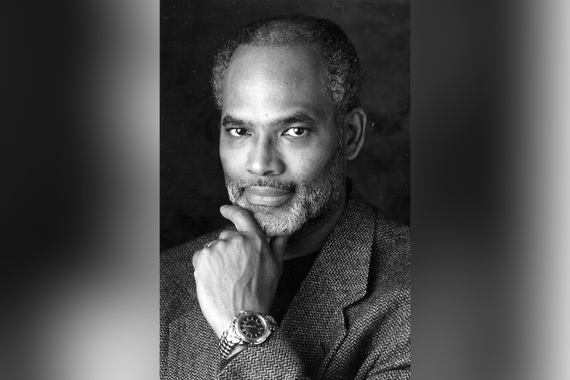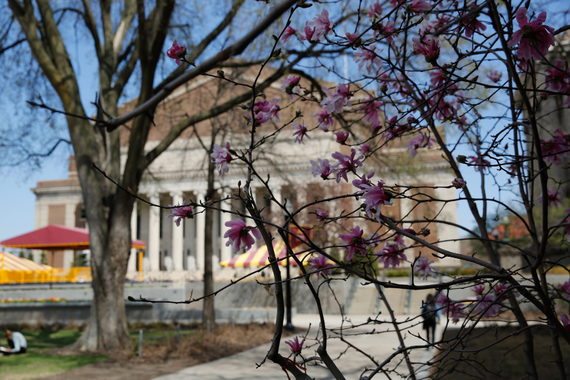Student Readiness and the Liberal Arts
THURSDAY, DECEMBER 11, 2014
The CLA Roadmap calls for CLA alumni to be superbly prepared for the next stage of life after campus. In addition to educating our students to be well prepared to engage in civic life, we must also give them the confidence that their liberal arts training has left them well prepared embark on their career path. Students—and prospective students—who know we are deeply committed to their readiness will consider CLA a prime destination. We need to attract large numbers of high-achieving, CLA-first-choice students by offering them something different and better.
When we think about the liberal arts we quite rightly often emphasize their value in teaching students to think critically, to excel in communication, to develop problem-solving skills, to ask new questions, and to gather and evaluate evidence from multiple sources, among other skills.
But the liberal arts do more.
The liberal arts also develop perspectives of thinking. A student learns to think like an economist, an anthropologist, a philosopher, a sociologist, a linguist, a creative artist, and across disciplinary lines. He or she learns to think globally and to communicate across languages. The liberal arts are valuable not just in teaching students to think critically, but in teaching them to think through these various lenses and to bring these perspectives to bear in analyzing issues and problems.
In addition to skills and perspectives, the liberal arts provide essential content knowledge—important in its own sake for living a well-lived life, and also for effectively working in careers either inside or outside the liberal arts.
So when we think about the importance of the liberal arts to developing skills, to developing disciplinary and interdisciplinary perspectives, and to developing the content knowledge that is critically important including in work outside the liberal arts disciplines, we can quite justifiably think of the liberal arts as the heart of great universities and indeed as the engine of societies.
Despite these positives, this is a stressful time for the liberal arts.
Students and parents express worries about whether a career is at the other end of their college years. Public officials and others are concerned about the effectiveness of instruction and want more accountability for outcomes. Everyone seems to express concerns about costs.
These, in my view, are all very reasonable concerns. And whether or not one thinks they are reasonable, they are not going away.
This means that those of us at great institutions like the College of Liberal Arts have obligations. But meeting each of these obligations is, at the same time, a wonderful opportunity.
I focus my comments here on one of these obligations: career readiness. CLA and the units within it are, proudly, rooted in the liberal arts. And the liberal arts are about more than career development. But surely they are related to career development. Our students are entering into an information-based economy of tremendous complexity. We can remain true to the liberal arts mission of unhindered inquiry and creativity while providing our students with additional information and guidance about how their educational experience can connect to their life after the University of Minnesota.
What would that mean in practice? A partial list might include:
- providing our students with more information about their courses, the skills they will develop, why the course is worth taking, and how it connect to a path of other courses
- pulling together courses, majors, minors, certificates, organizations with internships, study abroad opportunities, research experiences with faculty and graduate students, and alumni mentorship into “career bundles” for students considering particular career paths
- linking skills, perspectives, and knowledge developed in our courses (and course in other colleges) with those used in particular careers to help students articulate, when they are on the job market, how their liberal arts training will make them an outstanding professional
- building a pipeline of internship opportunities with local companies and organizations and providing students with research-based and experiential opportunities
- thinking creatively about new flexibilities we can offer in our curriculum; responding to areas of growing student interest; employing new instructional techniques and technologies where appropriate; establishing new certificates, minors, and post-baccalaureate programming with career relevance; and ensuring that faculty across our departments are engaged in the undergraduate experience
- providing more career advising and coaching and more fusion of academic and career advising
- introducing and networking students to our outstanding alumni base that itself pursued a range of careers from their liberal arts majors and is deeply enthusiastic about helping today’s Gophers.
The intent of actions like these is to help students (and parents) navigate the liberal arts terrain with confidence that students are being prepared with career-relevant skills and knowledge. Further, we want to give students confidence that a focus in the liberal arts will not only have them ready for life after college, but give them the further confidence to shift direction in 5 or 10 years down the road if they wish. Our students should be confident and be ready to aim high when they graduate.
We know that the liberal arts provide a strong foundation for life satisfaction, extensive contributions to our communities, and future career success. Employers tell us they are looking for those who can solve problems, think inventively, communicate well, consider multiple and diverse perspectives, work nimbly, conduct research, analyze the past, understand the present, and imagine the future. These tools are the fruits of a liberal arts education. The liberal arts promote an entrepreneurial mindset in students— inventive, risk-taking, questioning, innovative, analytical.
I know from talking with students and parents that they worry about a focus in the liberal arts. Their anxiety is most directly related to concerns about employment prospects.
Let’s eliminate that anxiety.
As we answer this challenge the obligation for CLA remains the same: to provide students the first-rate education and training worthy of a world-class R1 institution. Such an education helps students acquire the skills, perspectives, and knowledge provided by the deep and rich tradition of the liberal arts; conveys to them how to apply these skills, perspectives, and knowledge in their career pursuits; and provides them the unique learning and training opportunities afforded by attending a premier research institution.
I welcome your thoughts and questions through the Dean’s Suggestion Box or at clasugg@umn.edu.


